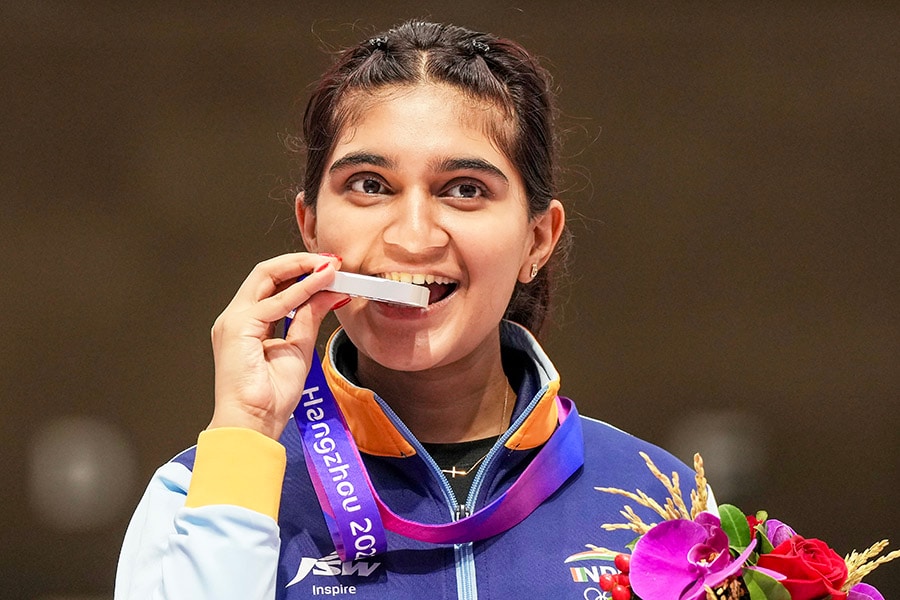
Train smart, don't burn out: Esha Singh
The rising star in shooting who's at her first Olympic Games, on getting basics right, self-discipline and the benefits of switching on and off with ease
 Esha Singh is an Indian sport shooter
Image: PTI
Esha Singh is an Indian sport shooter
Image: PTI
She’s all of 19, but Esha Singh knows how to hold her nerve. At the Hangzhou Asian Games in 2023, Singh faced a number of hold-ups—caused by equipment and target malfunction—during the final of the 25m air pistol. It could have been her kryptonite, given how success in shooting calls for astounding levels of calmness. But Singh ended up winning the silver medal in the event. As she proceeds into her first-ever Olympic Games, Singh will expect to hold similar composure on a stage that’s dubbed the world’s most prestigious. In an interview with Forbes India, the teenager reveals how she gets into the zone, and why it’s important to know when to take a break. Edited excerpts:
‘Never be afraid of failure’
I took up shooting as part of my summer holiday routine. The first ever competition I took part in was at the state-level, and I won a gold. There was no looking back since. Since I started shooting as a hobby, I never really had a role model. But as I went on, I got to know the champions. My first big inspiration came from Gagan Narang—I started off in his academy and would hear stories from him about how he made it to the top. Next came Abhinav Bindra, India’s first individual Olympic gold medallist. And I would also look up to Greek shooter Anna Korakaki, who won two medals in the 2016 Olympic Games. The great thing about these champions is they were all willing to share their knowledge. They also told me not to be afraid of failures, but embrace them. I never understood back then what that meant, but now, after now I can relate to it and realise how every failure builds you up for your next success.Also read: As stigma fades, Paris Olympians prioritise mental health















